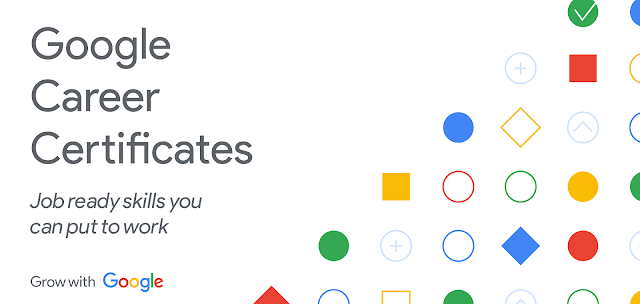Creating an onramp to jobs in Canada with Google Career Certificates

I recently ‘sat down,’ (virtually on Google Meet, of course) with four graduates of our Google Career Certificate pilot with NPower Canada, a Google.org grantee. One learner had worked in the restaurant industry for years, but when COVID hit he needed to make a quick career shift, so he enrolled in the Google IT Professional certificate. In less than a year, he’s now an IT specialist at Toronto-based software company TouchBistro, where he brings his passion for the hospitality industry to a company that develops point of sale systems used by restaurants around the world.
Although every graduate I spoke with had a different story to share, they all had one thing in common. Their lives had been disrupted over the last year in one way or another, but enrolling in these programs gave them a much needed purpose amidst a very difficult time. And it also opened up a window of opportunity to make a successful career transition - 83% of youth who graduated in September 2020 are now employed or in a new education program.
Throughout the pandemic, unemployment rates have climbed, but rates among visible minority groups and youth ages 15-24 continue to be some of the highest. To recover, we need to invest in skills training in fields with demonstrable demand, and ensure our programs are reaching the communities that have felt the toughest economic impacts of the pandemic. That’s why today we’re committing $2 million to reskill job seekers for new careers in technology in under six months. This support includes a three-year Google.org grant to NPower Canada to deliver Google Career Certificate programs and to deploy 5,000 need-based scholarships to access the program.
Google Career Certificates prepare job seekers for new, high-demand careers in growing sectors in under six months, with no degree or relevant experience required. This format helps break down barriers and create opportunities for underserved groups trying to enter the tech workforce. They’re available in Data Analytics, Project Management, UX Design and IT Support. And there’s a demand in Canada’s job market to fill these roles. According to Glassdoor, these four fields currently have more than 22,000 job openings across the country.

The 5,000 Google Career Certificate scholarships will be distributed through NPower Canada, in collaboration with referral partners like Pathways to Education, Toronto Public Library and the YMCA. To further support these initiatives, Google Canada will provide the non-profits with additional funds to improve existing job training programs.
To help create onramps to jobs, we’re also introducing a Google Career Certificate Employer Consortium for the scholarship graduates. The Employer Consortium is a group of employers, including Google, KPMG, TELUS and Loblaw, who will consider graduates of NPower Canada’s Google Career Certificate programs for eligible roles. For employers interested in connecting with skilled candidates and growing their talent pipeline, join the Google Career Certificate Employer Consortium by visiting g.co/grow/employers.
The pandemic has served as a stress test for all of us. As hard as it’s been, it’s also shown us how resourceful and resilient we can be. As we look towards Canada’s economic recovery, making sure job seekers have the skills to match workforce demands will be crucial. No matter what the future throws at us, we’re here to help. For more information on the Google Career Certificates visit g.co/certificates-canada. To find out more information about the scholarships visit NPower Canada’s website.
About Google Career Certificates:
The Google Career Certificates were developed by Googlers as part of Grow with Google, a global initiative designed to create economic opportunities. The certificate programs are available in Data Analytics, Project Management, UX Design, IT Support. Outside of NPower Canada’s programming, the certificates are delivered through the online learning platform Coursera and are available in English, with select availability in French starting in 2022.






